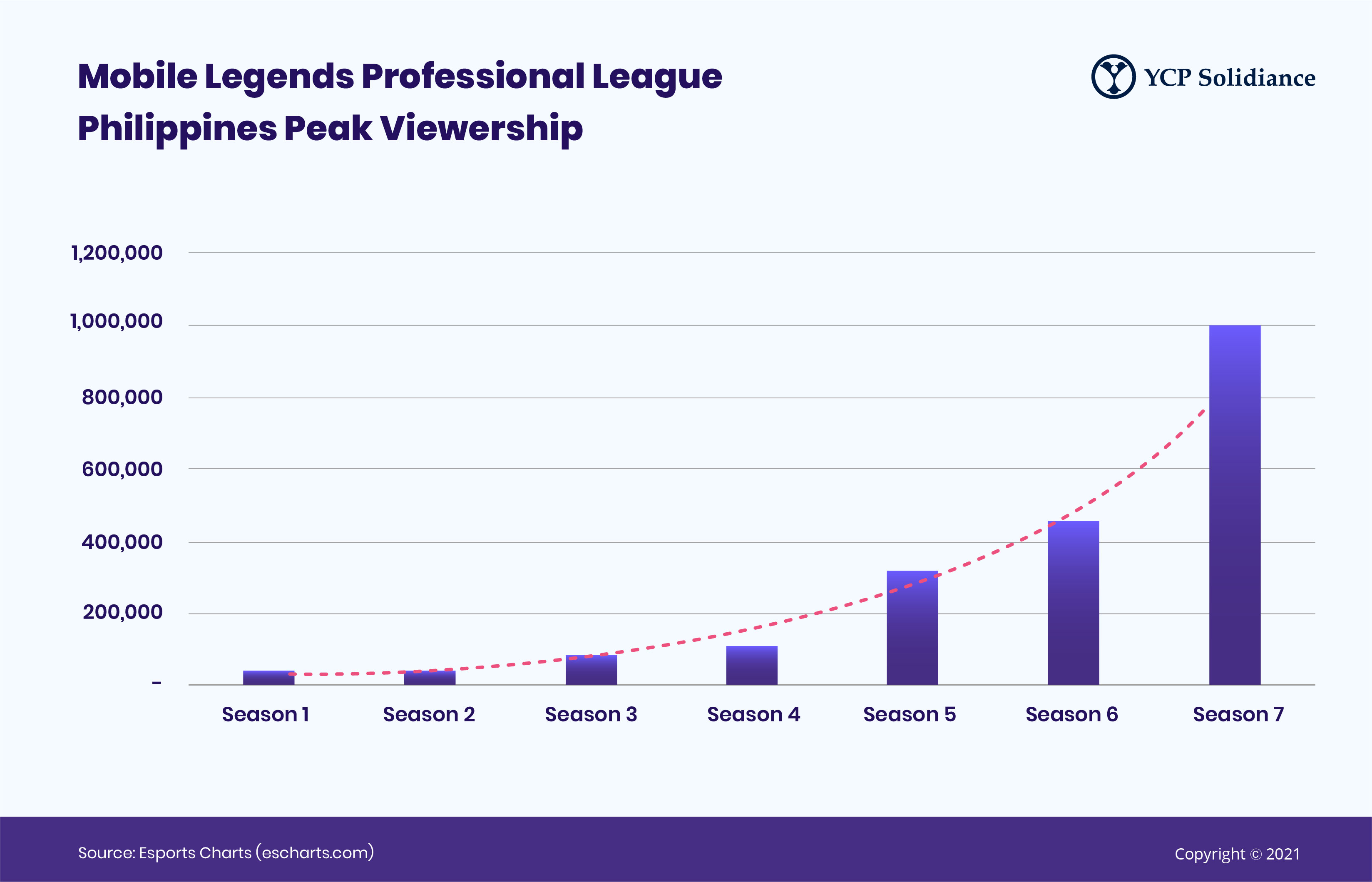A recent study reported in The Philippine Star states that the Philippines is currently ranked as the seventh best-performing country worldwide when it comes to esports earnings. The country’s esports scene has seen an unparalleled boom in recent years, driven by games such as Mobile Legends: Bang Bang, which has seen local esports teams dominate international tournaments. But what makes the game such a popular fixture of the local esports scene? Our publication The Next Level: The Rise of Esports in the Philippines takes a look at this phenomenon and explores its elements for success.
For more insights on the Philippines’ emerging business industries, subscribe to our newsletter here.
The three elements [of esports] (Content, Packaging, Accessibility) coming together is not an easy task and often is a long-term project before it is realized. A league in the Philippines, however, is taking the right approach and is showing the industry how to tackle sustainability as the primary objective in creating an esports league.The Mobile Legends Professional League is a prime example of the power of competition level influencing league popularity. Mobile Legends is unique given it is a very new esports entry, released only in 2016. As such, there were not any established competitive local outlets for a potential viewer craving for a Mobile Legends professional game, as only Southeast Asian countries and China play competitively.
These factors make the Mobile Legends Professional League (MPL) in the Philippines one of the highest levels of Mobile Legends competitive play that is accessible today. Partnering with the Mineski Events Team, MPL has a good mix of broadcast talent and showcase a lot of extra content online for their audiences to keep them constantly engaged with every development in the game’s scene. As for the exciting storyline they crafted? The latest winner of the MPL for its fourth season represented the country in the M1 World Championship last November 2019 to determine the best in the world, playing live for one final time just before the onset of the COVID-19 pandemic. In terms of audience base, Mobile Legends is again blessed with the access to over 3 million daily active players, so less effort is needed to reduce game resistance on their end and grow their audience base. Nonetheless, under their belt are an array of famous streamers who constantly play and hype up the community for its events. Added on to that, the game’s client on phones supports the matches on livestream, cutting some of the friction for an interested player to potentially check out the professional Mobile Legends scene.
When all three are combined, they create a harmony that sets the Mobile Legends scene in the Philippines apart. The results of these are staggering, with the latest streams for the championship round of Season 7 generating a whopping 1 million viewers combined (from Twitch and Facebook) at its peak. Adding to this are the live audiences that would have been present over two days had it not been for the pandemic—millions of viewers for a homegrown esports league. Even better is that it shows a marked improvement, exponentially growing the viewership number from the previous seasons, and a growing loyalty amongst its viewers as seen with the returning support after multiple editions of the tournament. Though more outside investments and direct sponsorship support is not yet prevalent, it stands to reason that future editions of the tournament will very likely catch the eye of many non-endemic sponsors.

Such support from game publishers will definitely help in speeding up the growth of the esports scene locally. They have direct stakes in the game’s success, and would be likely agents to provide financial and other intangible support. More than that however, it also requires a holistic investment in multiple facets with the league’s long-term sustainability in mind. A lot of tournaments focus heavily on competition without caring so much about how the game is packaged to the viewers or how it is being advertised that after some time, audiences are lost to what they are supposed to be watching, or worse, which teams they’re supposed to be supporting in the first place and lose interest altogether. On the other end, some leagues are so deftly packaged, but eventually lose the fervor and drive in its competition that can be found only when the best teams in the local scene are in the matchup list. At the end of the day, it is a delicate balancing act that requires concrete efforts on all ends to make sure all bases are covered. Such efforts require considerable investments, but when these are done right, successes such as the one Mobile Legends has shown is a definite possibility. Especially now that Mobile Legends’ success along the way is converting many non-participants of esports into potential audiences of tomorrow, the esports industry in the Philippines has never looked more approachable and primed to succeed in the coming years.
